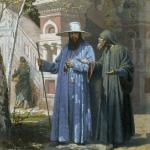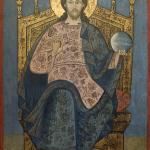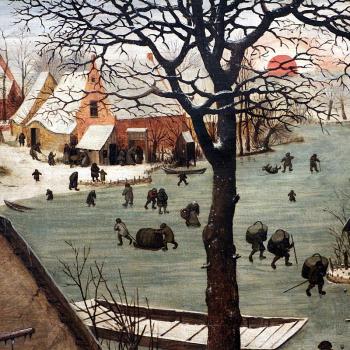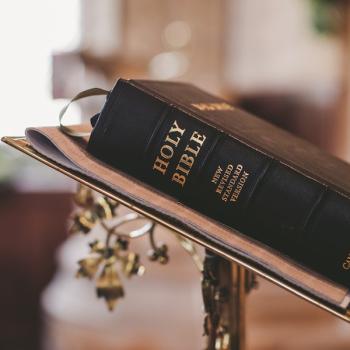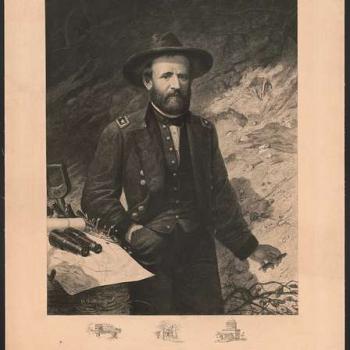Then I encountered an essay on the Schism of 1054 by a dear friend, Nathan Smolin. His work with the original documents showed that both sides acted wrongly in one way or another. The theological differences seemed to disappear for me; it all seemed like politics, with a lot of anger built up over centuries. My mind became at ease with the idea that history was messy, that life was messy. Over time I’d see more people mention the Massacre of the Latins or the Fourth Crusade’s sacking of Constantinople. It all began to seem like justification to me—“you all did this bad things, so of course we hate you. Plus, your theology is wrong!” Behind all the polemic seemed to me to be confusion and messiness. This realization always seemed to lead me back to the long and complicated history of Church communion before “the Great Schism.” The complexity of it all was, honestly, liberating. I didn’t have to know exactly who was right; I didn’t have to pretend my side had done nothing wrong while the other side had perpetrated every injustice. Original (or call it Ancestral!) Sin lived in us all.
Of course that did not solve the problem of which “side” to be on. I struggled a bit with Papal Infallibility. I did not like what I heard about the treatment of the Melkite Patriarch at Vatican I. Patriarch Gregory II Youssef made his position clear (the source here is Wikipedia, but the citations are all legitimate):
The Eastern Church attributes to the pope the most complete and highest power, however in a manner where the fullness and primacy are in harmony with the rights of the patriarchal sees. This is why, in virtue of and ancient right founded on customs, the Roman Pontiffs did not, except in very significant cases, exercise over these sees the ordinary and immediate jurisdiction that we are asked now to define without any exception. This definition would completely destroy the constitution of the entire Greek church. That is why my conscience as a pastor refuses to accept this constitution.
And what response did he receive?
After the First Vatican Council concluded, an emissary of the Roman Curia was dispatched to secure the signatures of the patriarch and the Melkite delegation. Gregory and the Melkite bishops subscribed to it, but added the qualifying clause used at the Council of Florence: “except the rights and privileges of Eastern patriarchs.” He earned the enmity of Pope Pius IX for this; during his next visit to the pontiff before leaving Rome, when Gregory was kneeling the Pope placed his knee on the patriarch’s shoulder, just saying to him: Testa dura! (You headstrong!). In spite of this event, Gregory and the Melkite Catholic Church remained committed to their union with the Holy See. Relationships with the Vatican improved following the death of Pius IX and the subsequent election of Pope Leo XIII. Leo’s encyclical Orientalium dignitas in 1894 addressed some of the Eastern Catholic Churches’ concerns on latinization and the centralization of power in Rome. Leo confirmed that the limitations placed on the Armenian Catholic patriarch by Pius IX’s 1867 letter Reversurus would not apply to the Melkite Church and he formally recognized an expansion of Patriarch Gregory’s jurisdiction to include all Melkites throughout the Ottoman Empire.
I knew the horrible story of Alexis Toth’s treatment by Bishop John Ireland. I knew that Latinization (that is, the modification of the liturgy and tradition to be more Latin) had plagued many of the Eastern Catholic Churches (and that it still plagues some of them). But I also knew that Vatican II had called for an end to such practices and signaled a more open, less Rome-centric ecclesiology. I could admit to myself that many Latin’s ultramontane views seemed too far, but I could also see that there was some special importance to having a primus inter pares in Rome, a fact admitted to by some important, contemporary Eastern Orthodox theologians.
I could also see that, as many Orthodox argue, the Byzantine Catholic Churches were part of a political power grab. This seemed tragic. But then I thought to myself: can any action be said to be totally apolitical? Did not St. Vladimir seek out a religion in the name of prestige and unity as much as in the name of beauty (is this not implicit in his decision to “choose” a Church?). Yet hasn’t much good come out of his decision? What about the early councils? Were these without political overtones? Many a pope and many a patriarch has ascended to power for “political reasons.” It seemed to me that such an argument wasn’t enough to write off these Churches that, by now, had produced much beautiful fruit.


